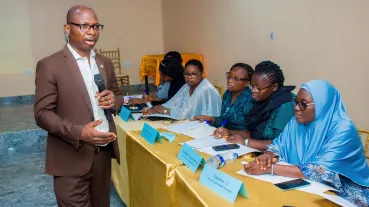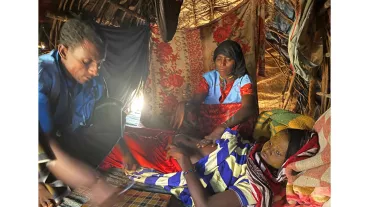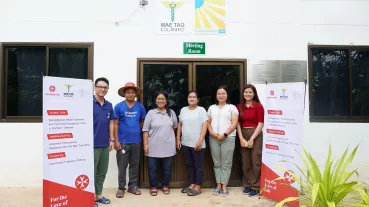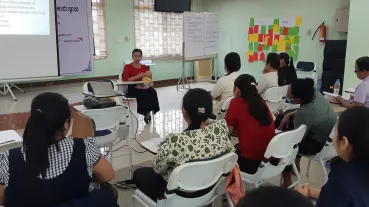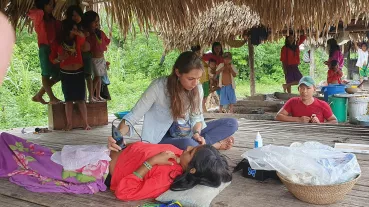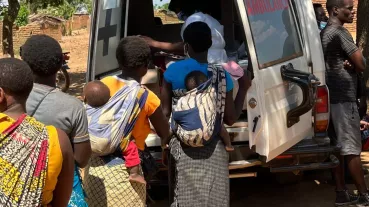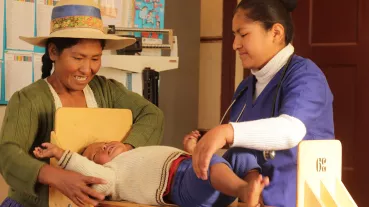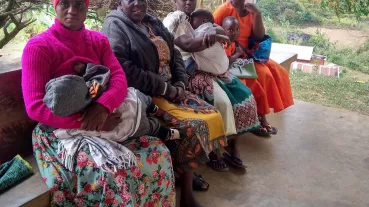Skills and Innovation for Maternal-Child Health
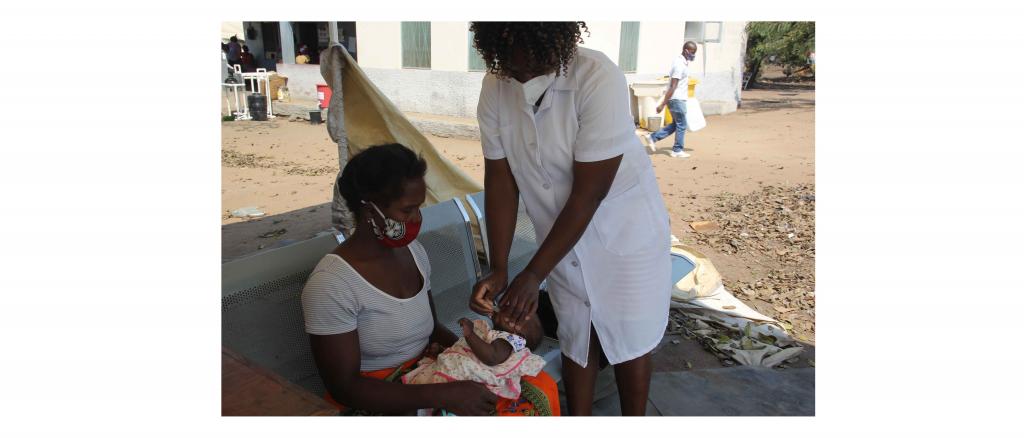
Situation:
Lack of access to electricity, especially in rural regions in Mozambique is still prevalent which is linked to poor healthcare services, limited possibilities to cool medication and increased health risks due to lack of lighting in rural health posts. Women and children face higher health risks. Moreover, only 25% of the regional health workers are educated beyond primary school level.
Objectives:
Our main objective is to improve maternal-child health and promote healthy communities through innovative and sustainable capacity strengthening approaches in Mozambique.
- A curriculum for the “Skills and Innovation for Maternal-Child Health” Integrated Medical Teaching Model curriculum is developed in a participatory way and validated on an institutional level.
- The “Skills and Innovation Integrated Medical Teaching Model” is applied in a diploma course by both the conventional and traditional health system to improve the quality of the services and key processes related maternal-child health.
- A strategy to improve the quality of health services especially in maternal-child health is established at Panja Health Center, including enhancements in performance, infrastructure, systems, processes and resources available.
- Database & Systematization: Creation of a database including the beneficiaries and indicators achieved during the previous program phases and documentation of lessons learned
- Documentation: Establishment of a document describing the approach for the promotion of maternal-child health based on community participation and innovation
- Appointment of an expert panel: A panel of experts in the areas of mother-child health is formed. The experts will be in charge of the development of the curriculum which is going to be done during knowledge exchange meetings.
- Implementation of training cycles of diploma course Training of 15 – 20 participants per diploma course in the areas of 1. Integrated management of pregnancy and childbirth, 2. Basic care modalities for obstetric emergencies, 3. Humanization approach, 4. Early essential newborn care and neonatal care, 5. Treatment of Malaria, HIV and other diseases in children under 5 years and 5. Health post management, community health monitoring and workplace management.
- Improve quality health services and community participation: Implementation from the perspective of the Health Center, of the activities corresponding to the promotion of community participation in maternal and child health
- Access to basic services: Promote access to basic services for pregnant women and children under 5 years of age, essentially reducing cultural, linguistic, physical and economic barriers.
- Clean water & renewable energy for health: Rehabilitation of the water system and installation of a functional renewable energy system in the health post and in the Medical Health Center in Panja.
- Access to modern communication technologies: To improve communication, promote development and access to educational material using modern telecommunication technologies, a satellite internet system is going to be installed in Panja, allowing for the first time, access to internet in this remote rural village.
The replication potential is very high given the sustainability of the project through created ownership throughout the process of project planning and implementation by both, the MoH and the target communities. By working not only with the direct beneficiaries but also on an institutional level, the results strengthen the local health system sustainably.
The innovative aspect is that a health model and a curriculum are developed, that are based on a tested approach which includes both traditional and modern health system aspects. This allows a holistic, participative and integrative approach to strengthen maternal-child health.
Here you can get further information.
